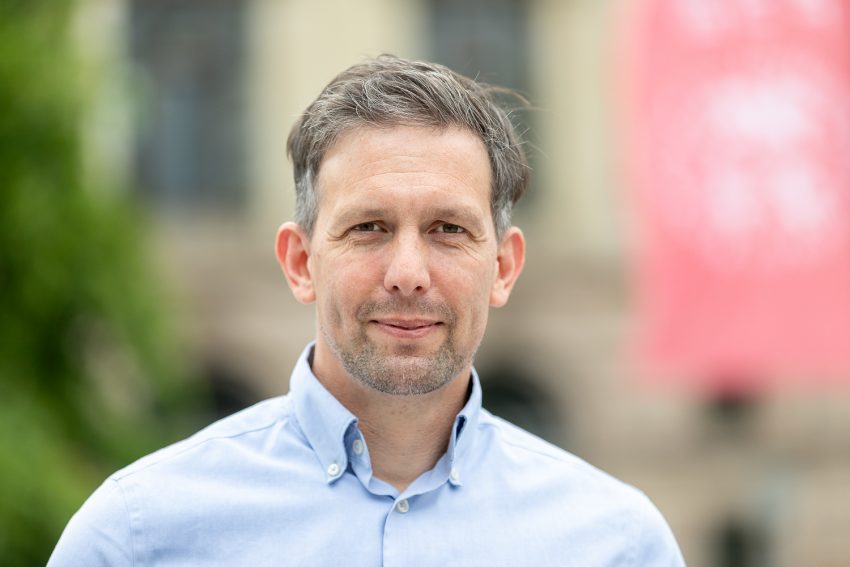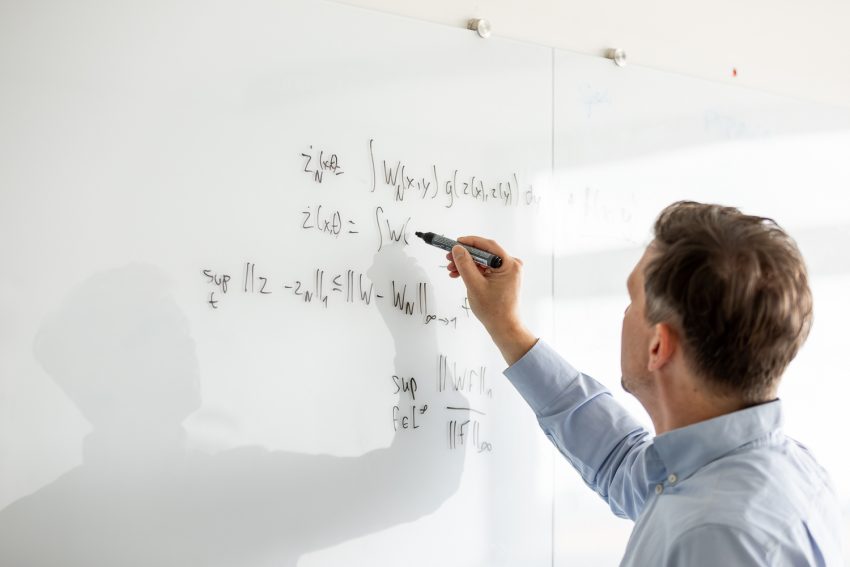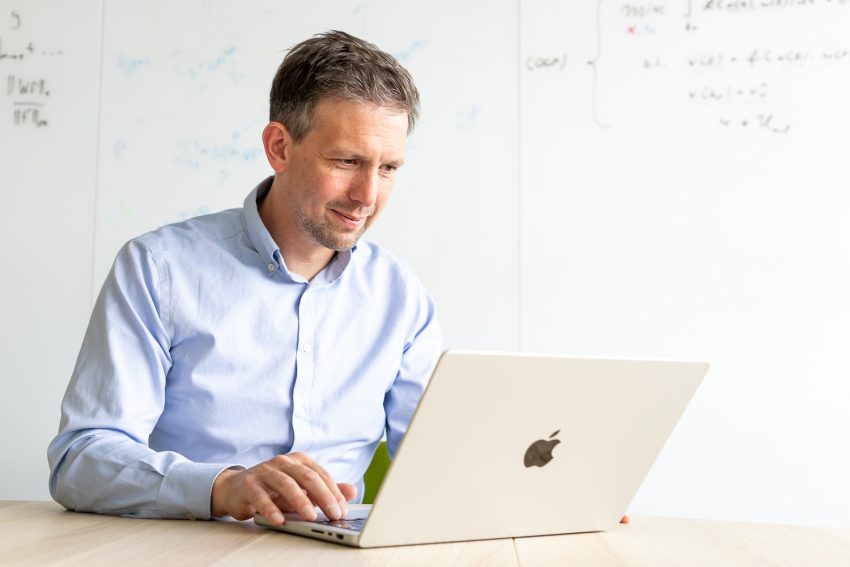Surprising solutions for a more efficient world Innovators & Explorers: How Professor Christian Kirches is shaping the future with mathematics
In an increasingly complex world, where systems such as autonomous vehicles, smart grids and sustainable energy supplies are becoming the norm, the ability to make optimal decisions under uncertainty is paramount. Professor Christian Kirches from the Institute for Mathematical Optimisation at Technische Universität Braunschweig is dedicated to tackling this very challenge. His research could have a decisive influence on how we live, work and use energy in the future.

Professor Christian Kirches from the Institute for Mathematical Optimisation. Photo credit: Kristina Rottig/TU Braunschweig
For Professor Christian Kirches, mathematical optimisation means finding the best option among the countless possibilities for controlling a system. He uses mathematical models to represent real systems, such as a car’s driving behaviour or a building’s energy consumption. The challenge lies in translating this reality, with all its reference variables, into a mathematical formula and deriving a solution that works and is optimal.
“Highly complex tasks that humans cannot intuitively solve optimally – but mathematics can.”
Christian Kirches
Mathematical optimisation is encountered in many areas of everyday life where the aim is to make processes as efficient as possible. A classic field of application in Braunschweig is autonomous driving. Here, calculations must be made in real time to determine when and how hard to brake or steer. “These are highly complex tasks that humans cannot intuitively solve optimally – but mathematics can,” says Professor Kirches.
Answers to practical questions
From an early age, he was fascinated by the fact that mathematical equations can solve real-world problems. He was interested in computers even as a child and later discovered the potential of mathematical modelling. His doctoral supervisor at the University of Heidelberg, Professor Hans Georg Bock, had a formative influence on him, demonstrating to students in lectures how mathematical optimisation could be used to answer practical questions. From then on, he was sure: “I don’t want to do anything else.”

Professor Kirches was fascinated from an early age by the fact that mathematical equations conceal solutions to real-world problems. Photo credit: Kristina Rottig/TU Braunschweig
One focus of his work is optimal control, or the question of how to design dynamic processes in the best possible way. “These are applications where what makes intuitive sense and what is actually optimal are very far apart – where we humans cannot use our intuition to optimise the system’s behaviour,” explains Professor Kirches. This applies not only to the automotive sector and chemical process engineering, but also to robotics, systems biology, and medical treatment plans. Where human intuition fails, mathematics often provides surprising solutions.
Foundation for the technological future
In his current project, “SCARCE”, which has been awarded a prestigious ERC grant, Professor Kirches is investigating optimisation tasks for hierarchical network structures – complex systems such as those found in transport and electricity networks or in protein functions in biology. “This is a very challenging optimisation task, because its complexity increases dramatically with the size of the network.” In addition, the calculations must remain robust against changes such as weather or traffic density. His goal is to develop algorithms that solve these optimisation problems quickly and efficiently, first in theory, then using real data sets in case studies.

Prof. Christian Kirches: “With a computer, we can run through what-if scenarios and learn from them.” Photo credit: Kristina Rottig/TU Braunschweig
However, the results of his ERC project are not expected to be implemented in electricity or transport networks in the near future. “Mathematics is basic research,” Kirches emphasises. Nevertheless, he is laying the foundation on which the technological future can be built: electricity grids that respond intelligently to bottlenecks. Vehicle fleets that act together instead of in isolation. Or mathematical scenarios on which people can base informed decisions. “We can use computers to play through “what if” scenarios and learn from them.”
“Good mathematics proves a groundbreaking new result or helps to solve real problems – ideally both.”
Christian Kirches
Cooperation with partners from industry and research
Despite the theoretical nature of his work, it is always application-oriented. Kirches collaborates with partners from industry and business on numerous projects, whether in traffic management, energy technology or medicine. He believes: “Good mathematics proves a groundbreaking new result or helps to solve real problems – ideally both.”
Braunschweig offers optimal conditions for his research, with close links to the engineering sciences and opportunities to collaborate with regional industry and research partners. There is also a strong network of optimisers and optimal controllers in Hannover, Clausthal, Magdeburg and Freiburg, all of whom studied under his former doctoral supervisor. This scientific “school” facilitates collaboration: “We speak the same language.”
